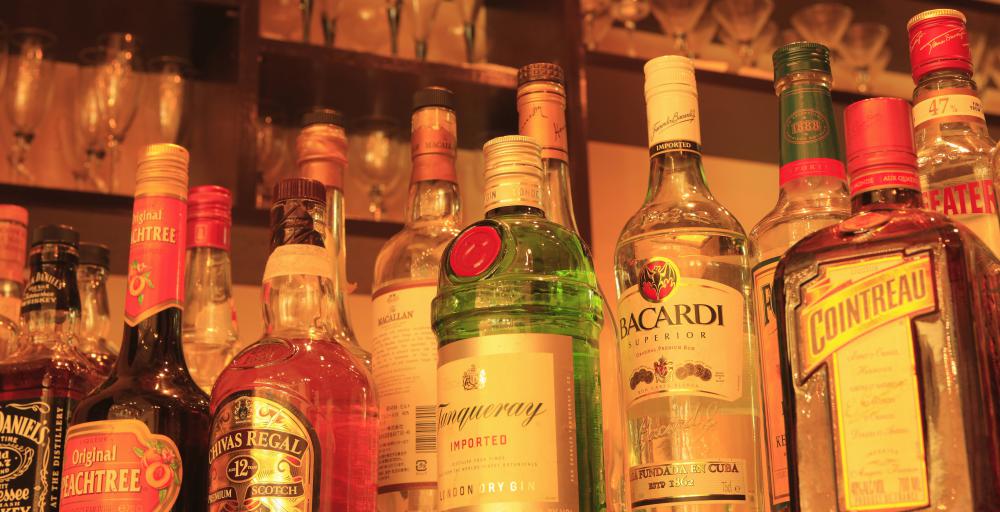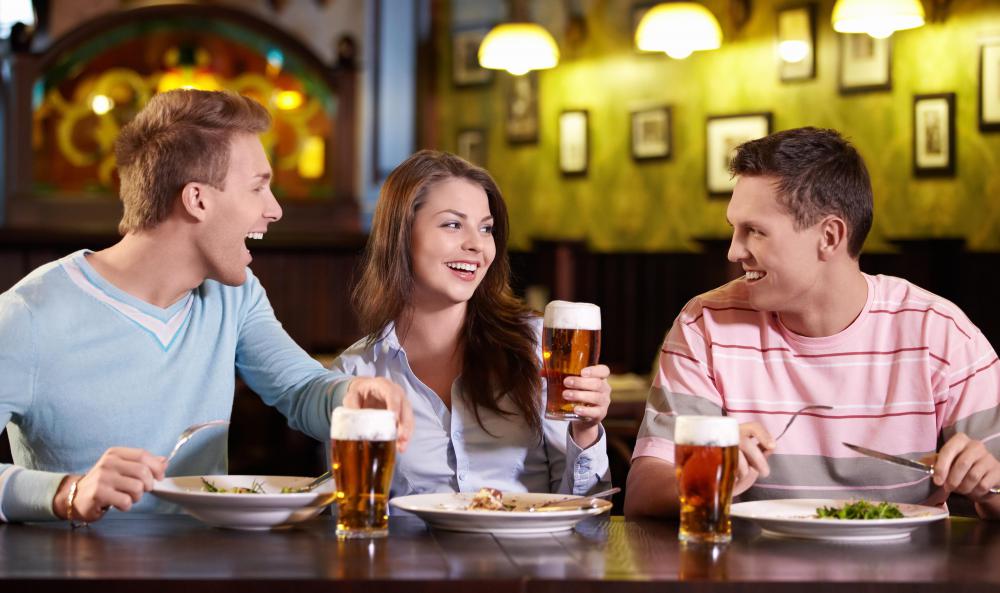At WiseGEEK, we're committed to delivering accurate, trustworthy information. Our expert-authored content is rigorously fact-checked and sourced from credible authorities. Discover how we uphold the highest standards in providing you with reliable knowledge.
What is the Relationship Between Alcohol and Anxiety?
The relationship between alcohol and anxiety stems, in part, from the tendency of people suffering from various anxiety disorders to self-medicate the condition. Using alcohol for the relief of symptoms from disorders like generalized anxiety disorder (GAD), social anxiety disorder (SAD), and post-traumatic stress disorder (PTSD) can lead to rebound anxiety and a worsening of clinical symptoms overall. Alcohol misuse, by itself, can also lead to the development of anxiousness and related anxiety disorders, the most serious being anxiety from acute withdrawal from chronic alcohol use, which often times requires hospitalization for several days. A lengthened condition, protracted abstinence syndrome, can extend anxiety symptoms for several months, which may require medication and psychological counseling.
The Anxiety Disorders Association of America (ADAA) reports that over 40 million Americans suffer from GAD and that these individuals are shown to be two to three times more likely to abuse alcohol and other psychoactive substances. Another statistic states that almost 20 percent of people with SAD abuse alcohol in social situations. Many times, it is hard to determine which condition arose first, the anxiety disorder or the substance abuse, but the most common treatment method is that of working with a "dual diagnosis." By treating both conditions, alcohol and anxiety, at the same time, one is not likely to cause a relapse of the other. Heavy drinking has also been shown to disguise an underlying anxiety disorder, which then makes the psychological problem hard to treat effectively.

Research is emerging that shows the varied mechanisms by which alcohol and anxiety are related. A study done at the University of Illinois shows that a certain protein, Arc, which is found within the part of the brain associated with stress response and emotions, the amygdala, becomes compromised in animals exposed to chronic alcohol. Nerves communicate by dendritic spines, and dendritic spines containing Arc, a natural anxiety inhibitor, grow when they are exposed to alcohol. Growing dendritic spines that contain Arc is one of the physiological processes in the brain that contribute to the initial relaxation response after a person takes a drink. If alcohol use becomes chronic, however, the brain becomes tolerant to the relaxation response, and the result is a chemical imbalance in the brain that can cause significant anxiety.

The hangover experienced by healthy alcohol users is a small anxiety reaction to withdrawal from alcohol. When people develop a lasting anxiety disorder from alcohol, the reaction tends to become progressive and sometimes chronic. If both the alcohol and anxiety disorder are treated concurrently, however, there is a greater chance of regaining mental health.
AS FEATURED ON:
AS FEATURED ON:




















Discussion Comments
As part of my anxiety treatment my doctor recommended that I stop drinking alcohol. He suggested that I used alcohol as a crutch, a way to kill my feelings of anxiety without ever really dealing with them.
I know that he was right. I would not call myself an alcoholic but I was definitely drinking too much. And it was not because I love drinking, or being drunk, I just like the loose uninhibited feeling that I got when I had had a few drinks. It was so much different than the way I felt when I was sober.
Post your comments